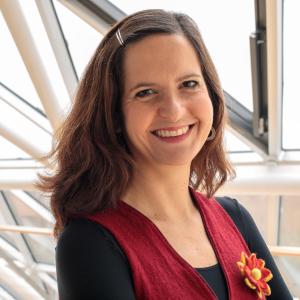With one drop of blood, five minutes and the right financing, a Portuguese company revolutionises medical diagnostics
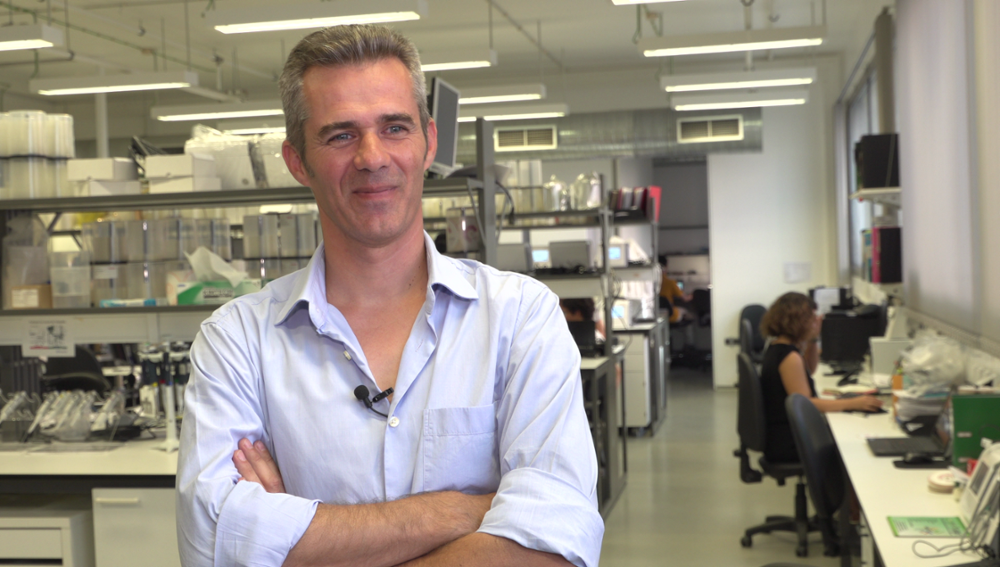
João Fonseca, CEO of Biosurfit, turned a traumatic blood test into an innovative business
If your small child ever needed a blood test, you know what Portuguese researcher João Fonseca went through 10 years ago. His 2-year old son Miguel had a high fever, a respiratory infection—and little desire to see a needle. Still, the doctor needed a blood sample to identify the origin of the disease. “It was not a pleasant experience,” João remembers. “I was surprised to see all the people you need just to try to reassure the kid, to immobilise him and collect the blood.”
And then, the waiting. It took two days to get the results that confirmed Miguel’s condition was not serious. But by that time his father had something quite serious in mind: simplifying the process. “I was doing research at the University of Lisbon on a very different topic, interfaces of materials, and I found that the technology I was working on could be used to get blood test results in a precise, less painful and faster way.”
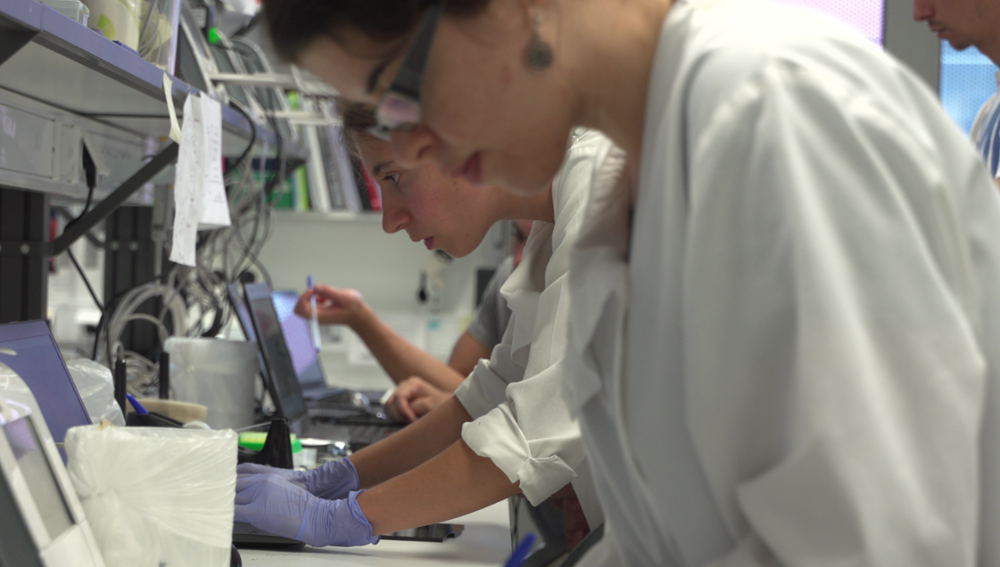
Around 100 young Portuguese researchers use their talent to simplify medical diagnostics
Today, João is the founder and CEO of Biosurfit, an award-winning Portuguese company that specialises in innovative medical diagnostics. He leads a team of around 100 young talents. The technology they have developed, spinit, allows doctors to get the results of blood tests in a matter of minutes from a single drop of blood, directly at the point of care. They can then decide on the best course of action while the patient is still there with them—and start the most effective treatment as soon as possible.
Medical innovation from previous failure
Going from university research to an industrial start-up was “a bit of craziness, because I didn’t know anything about medical diagnostics,” says João. But he did know where to find the right guidance: previous failure.
“A few years earlier I had tried my first start-up. It was not a success but I learnt a lot of things. First, that I could not do it all on my own. I had to find the best people, biochemists, physicians, to help me make this possible. Second, that identifying a large unmet need and developing a technology that works is not enough. If you want to move from demonstrating to producing, you need money.”
So in mid-2014 João applied for a loan from the European Investment Bank. “I filled an online form available on the EIB website without too much hope. We are small and, though we have amazing technology and people, ours is a risky business. But along the process I was really surprised by the way people from the Bank were involved, and by the fact that such a big institution made the step of believing in an adventure such as Biosufit.”
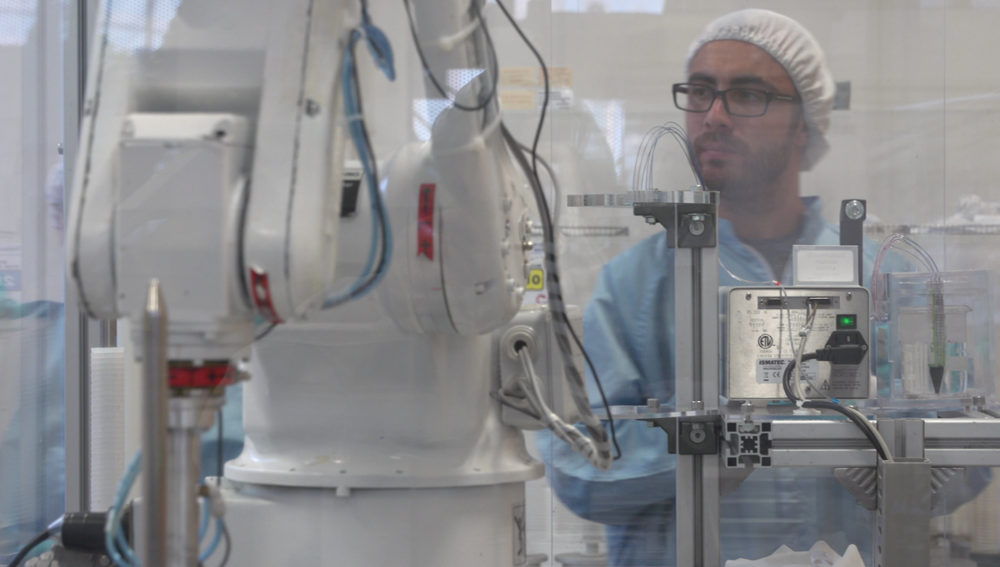
A Biosurfit researcher checks the functioning of the machines at the company’s lab. Located at the Universidade Nova de Lisboa, the facilities are becoming too small for the growing team. The EIB loan will help finance a new factory
With a EUR 12 million loan from the EU bank, João and team are building a new factory in Lisbon, hiring new people and investing to deliver new test options to doctors. The loan is supported by InnovFin – EU Finance for Innovators, an investment programme designed to facilitate access to finance for innovative businesses.
Medical innovation gets innovative financing
The EIB’s loan to Biosurfit is actually a new product called quasi-equity. The product aims to fill the market gap that afflicts many R&D-intensive, small and medium-sized European companies. At an early stage of development, it’s a challenge for such companies to find debt financing from the private sector. Their financing needs are also smaller than a regular EIB loan. Here’s how it works:
The EIB makes a loan to an innovative company like Biosurfit. Steady repayment of the loan or interest payments would drain the company’s coffers just when it needs to be investing in research and development. Quasi-equity loans allow more flexible repayment that can be based on the performance of the company.
“Without the backing from the EIB we would go slower and we’d be unable to deliver to the market the products they are asking for. This loan allows us to develop and attempt to conquer the world in a quicker way,” João says with a smile.
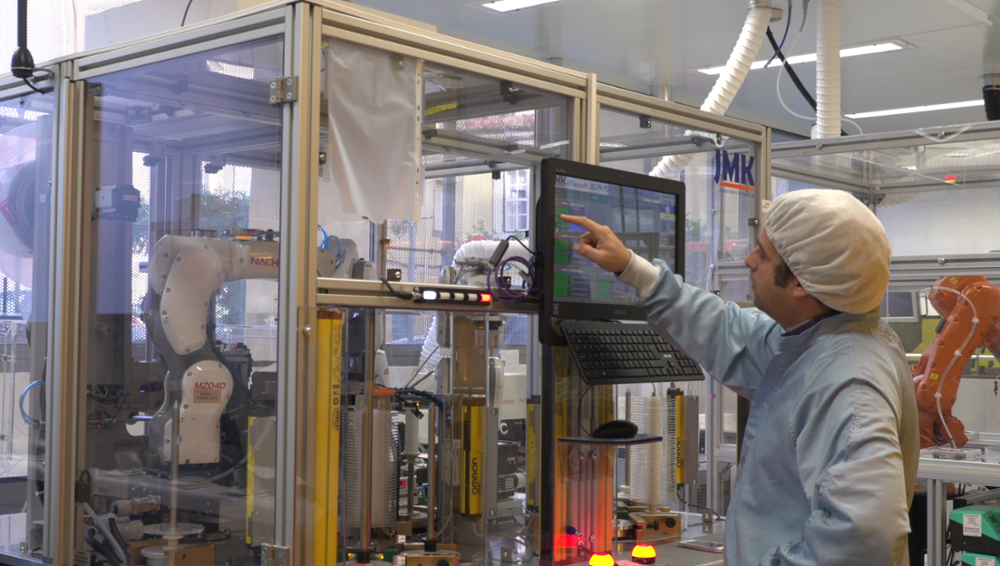
A blood test at the company’s lab
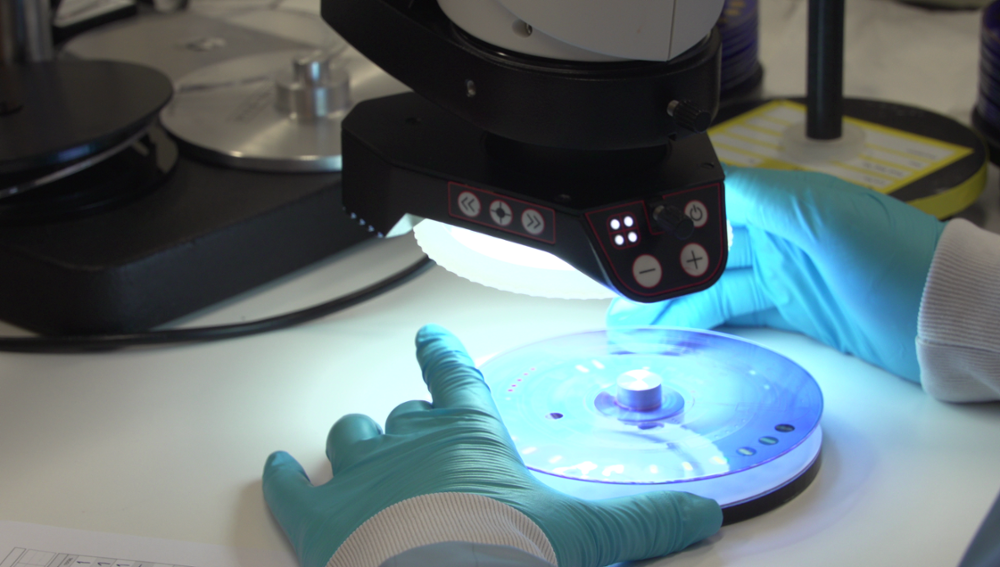
Biosurfit’s technology analyses a small drop of blood placed inside a disposable CD with a special CD drive, also developed by the team
Biosufit is now selling its technology to hospitals and doctors’ offices in the Netherlands, Belgium, Norway, Switzerland and the Middle East. They expect to expand to the US and Asia in a couple of years.
João has travelled the world over explaining how Biosurfit’s Portuguese innovation helps both patients and doctors. “Coming from a country that’s not well known for its science, we have an additional responsibility to show we are capable of doing cutting edge technology. People are surprised at first, but showing the technology working always makes the difference!”
